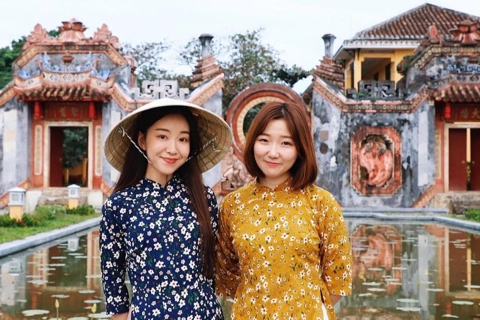Vietnamese-Korean children enjoy their “back to the Motherland” trip
The trip to Vietnam opens up an opportunity for Vietnamese Korean children to cherish not only their motherland but also its unique culture and history.
The delegation of Vietnamese in South Korea, which included teachers and children aged 10-13, arrived in Hanoi on August 4 to kick off the 5-day "2024 Vietnam trip for Vietnamese Korean teachers and children" in the city of Hanoi and the provinces of Ninh Binh and Quang Ninh.
Upon arrival, the delegation took their first day in Hanoi to visit the Tran Quoc Pagoda, a more than 1500-year-old attraction located in the middle of the West Lake. They could not help but marvel at the long history and unique charm of one of Wanderlust’s ”10 most beautiful temples in the world”.
The next morning, the delegation gathered early at Ba Dinh Square to tour Ho Chi Minh's Mausoleum and the Presidential Palace. For many of the members having lived away from Vietnam for years, it was their first time paying homage to President Ho Chi Minh at his mausoleum. Therefore, they were thrilled to see the memorabilia and documents and hear stories about President Ho Chi Minh and his revolutionary career. Meanwhile, Vietnamese Korean children were excited to learn about Uncle Ho's dedication to youngsters and enjoyed visiting his stilt house and fish pond.
| The delegation of Vietnamese Korean teachers and children visit President Ho Chi Minh's mausoleum and the Presidential Palace. Photos: Viet Anh |
“I admire Uncle Ho for his talent and determination. My teacher often teaches me to sing "Who loves Uncle Ho more than children?" (Ai yeu Bac Ho Chi Minh hon thieu nien nhi dong?) in Vietnamese”, said a Vietnamese Korean juvenile. Born and raised in South Korea, the children of the Vietnamese communities are taught and can communicate in their mother tongue. The most touching moment was when the children sang "As if Uncle Ho were here on Victory Day" (Như co Bac trong ngay dai thang) and read aloud the "Independent Democratic Republic of Vietnam” motto in Vietnamese.
After leaving the Presidential Palace, the delegation stopped by the Temple of Literature. Visiting Vietnam's very first university was a source of great surprise and admiration for Vietnamese Korean children like Le Trang. “It was the tour guide and the teacher who told about the place where the children of the Vietnamese Imperial family used to study, and that both Vietnam and Korea have the same tradition of learning”, Le said.
| Vietnamese Korean children read aloud the "Independent Democratic Republic of Vietnam" motto at the statue of President Ho Chi Minh |
At the end of their two-day visit to Hanoi, the delegation met with leaders of the Ministry of Foreign Affairs State Committee for Overseas Vietnamese and visited the Korean Cultural Center in Vietnam, where the children enjoyed making conical hats.
Building patriotism among the next generation of Vietnamese Korean
The "2024 Vietnam trip for Vietnamese Korean Teachers and children" provides Vietnamese Korean children with the opportunity to not only learn and experience unique cultural and historical values but also nurture pride, solidarity and responsibility for their Motherland.
| Dr. Do Ngoc Luyen introduced overseas Vietnamese Korean children to the Presidential Palace. |
“Its main purpose is to show the children that Vietnam has such a long and majestic history and magnificent scenery to be proud of. Besides, the trip also helps them be more independent in group activities and improve their ability to communicate in Vietnamese", said Dr Do Ngoc Luyen from Kwang Un University, a member of the delegation.
Mr. Doan Quang Viet, another member, noted that most Vietnamese parents are well aware of teaching their children about their Motherland’s history and legends. However, it is only through the "real people, real things" experiences like the trips to Vietnam that the children can be more effectively instilled with patriotism so that they can more proudly and confidently present historical figures and achievements of Vietnam to their Korean friends.
| The delegation of Vietnamese Korean teachers and children visit the Temple of Literature in Hanoi. |
"Knowing where you come from is the best way to fight discrimination”, stated Doan, who is eager to let his children learn and explore many places in Vietnam, “If we have enough knowledge and self-esteem about our nation, no one can look down on us, no matter where we are from".
Maintaining mother tongue overseas
Although the Vietnamese community in South Korea has only been in existence since 1992, when the two countries established diplomatic relations, it has grown impressively to nearly 277,000 people. Therefore, the need to learn Vietnamese in South Korea is on the increase, especially for the next generation of Vietnamese Koreans.
| Vietnamese Korean children enjoy crafting conical hats at the Korean Cultural Center in Vietnam. Photo: Tuan Viet |
Nguyen Thi Le Hoa, President of the Vietnamese Association in Gwangju City and Jeolla Province, said her community is offering free online and offline Vietnamese language classes for children. She praised the Vietnamese language as an important identifier of the Vietnamese people and culture, so it is extremely meaningful for Vietnamese Korean children to know their mother tongue and uphold their Motherland’s traditional values.
With the implementation of the multicultural policy, the South Korean government has been supporting multicultural centres in provinces and cities nationwide to organize Vietnamese language classes for children of Korean-Vietnamese families or any South Korean having an interest in Vietnamese culture.
Since 2014, Korea has chosen Vietnamese as the second foreign language in the university entrance exam. Some high schools have also introduced Vietnamese as an official subject since 2018.

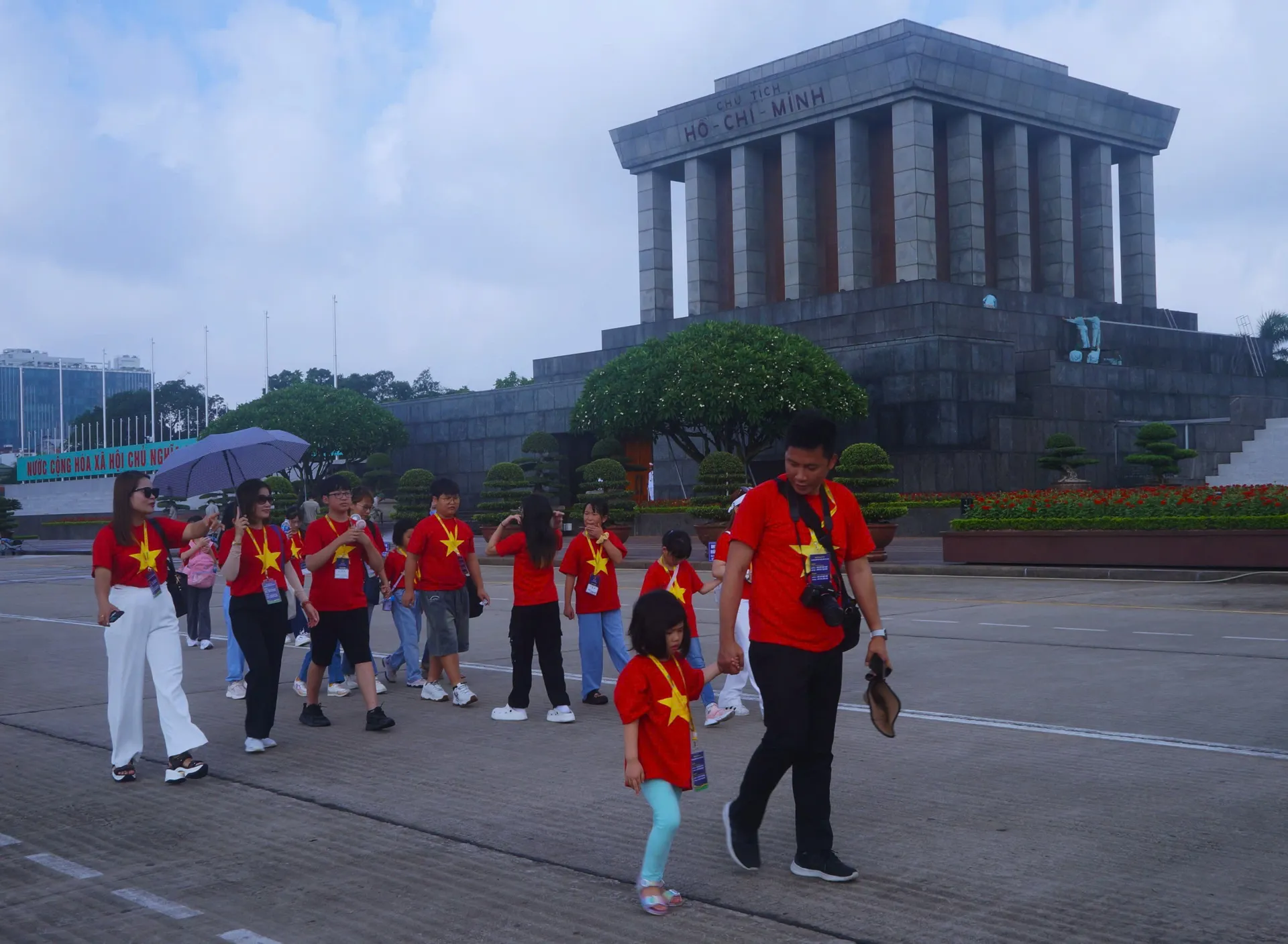
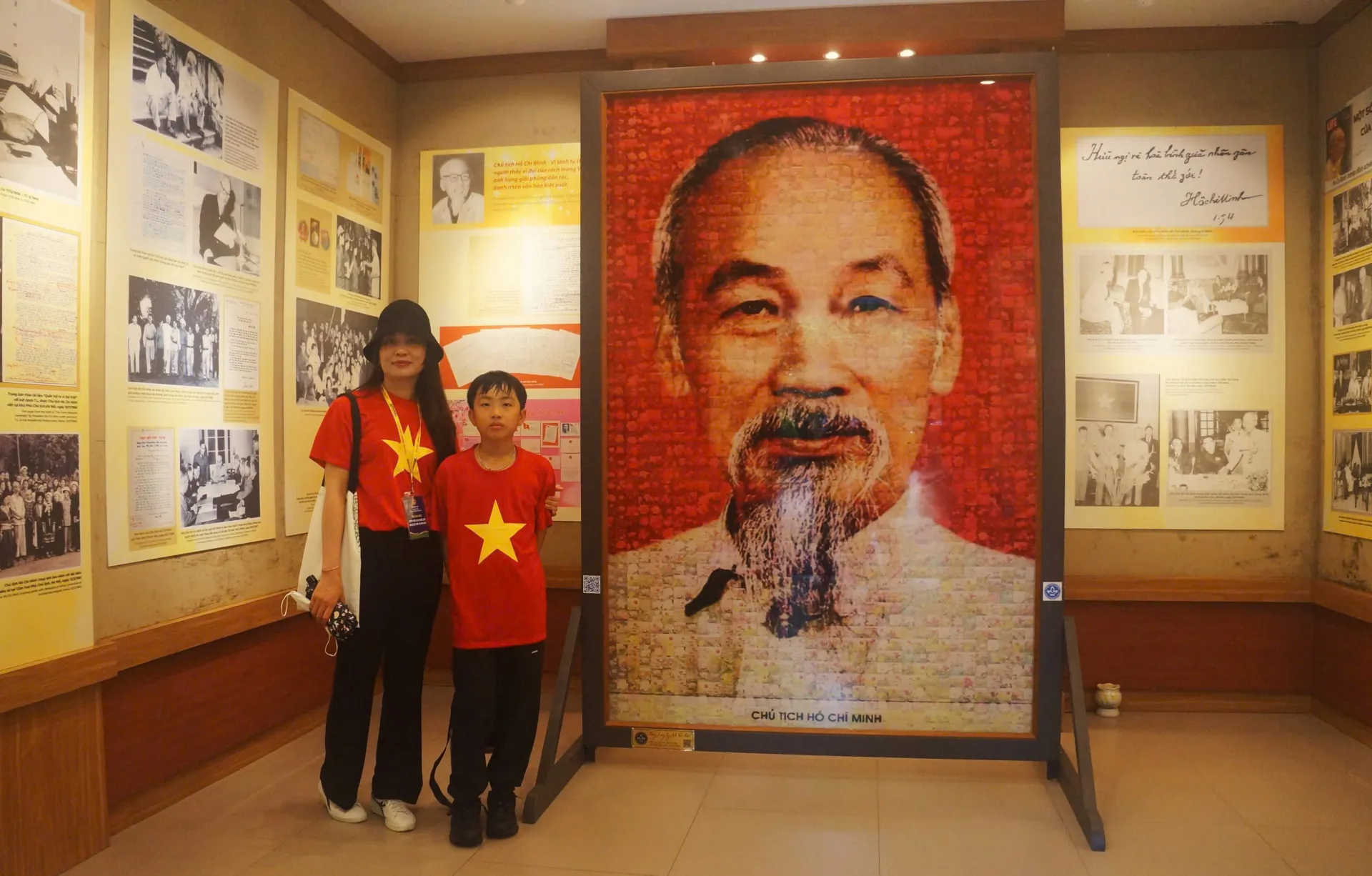
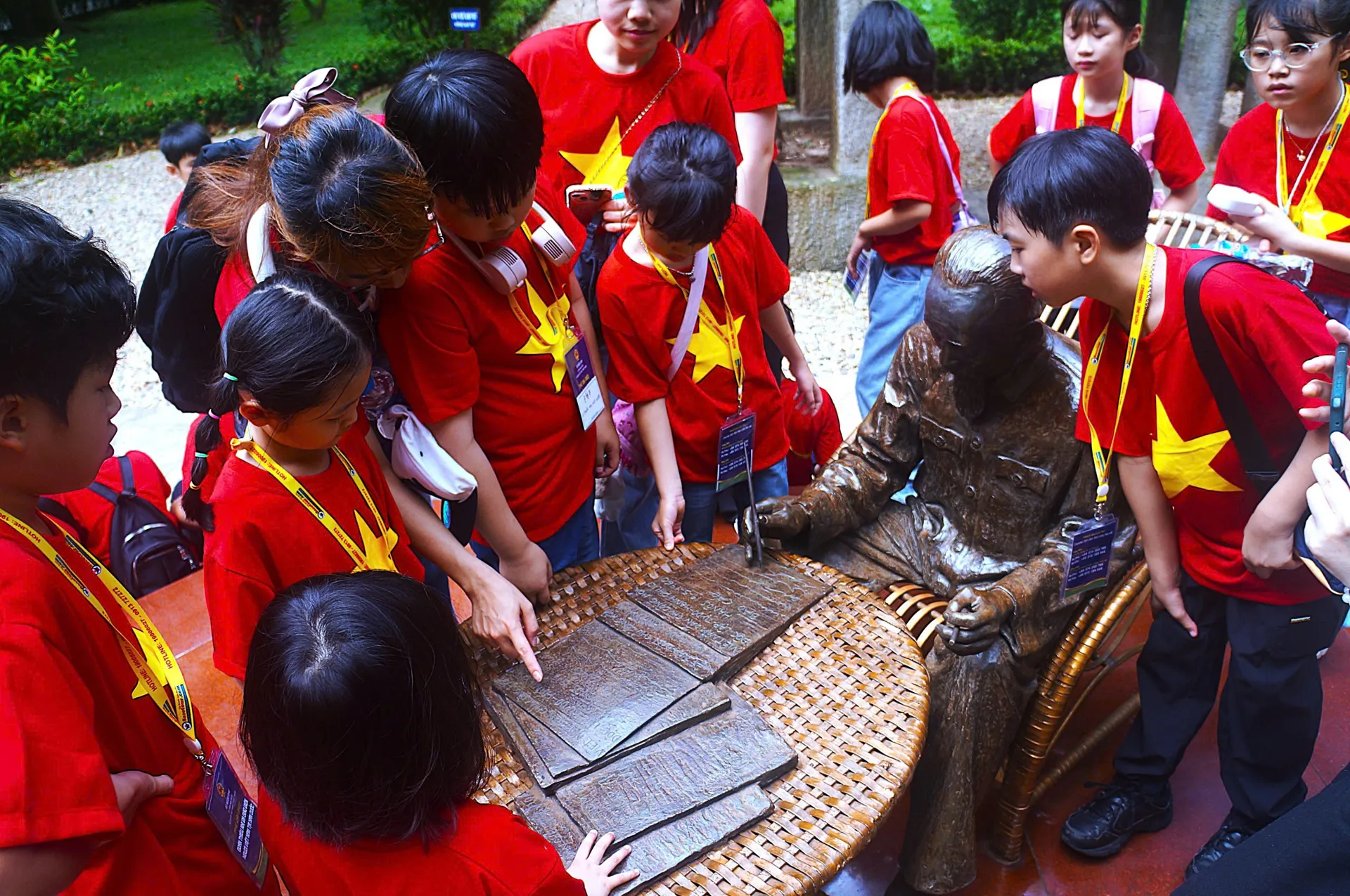
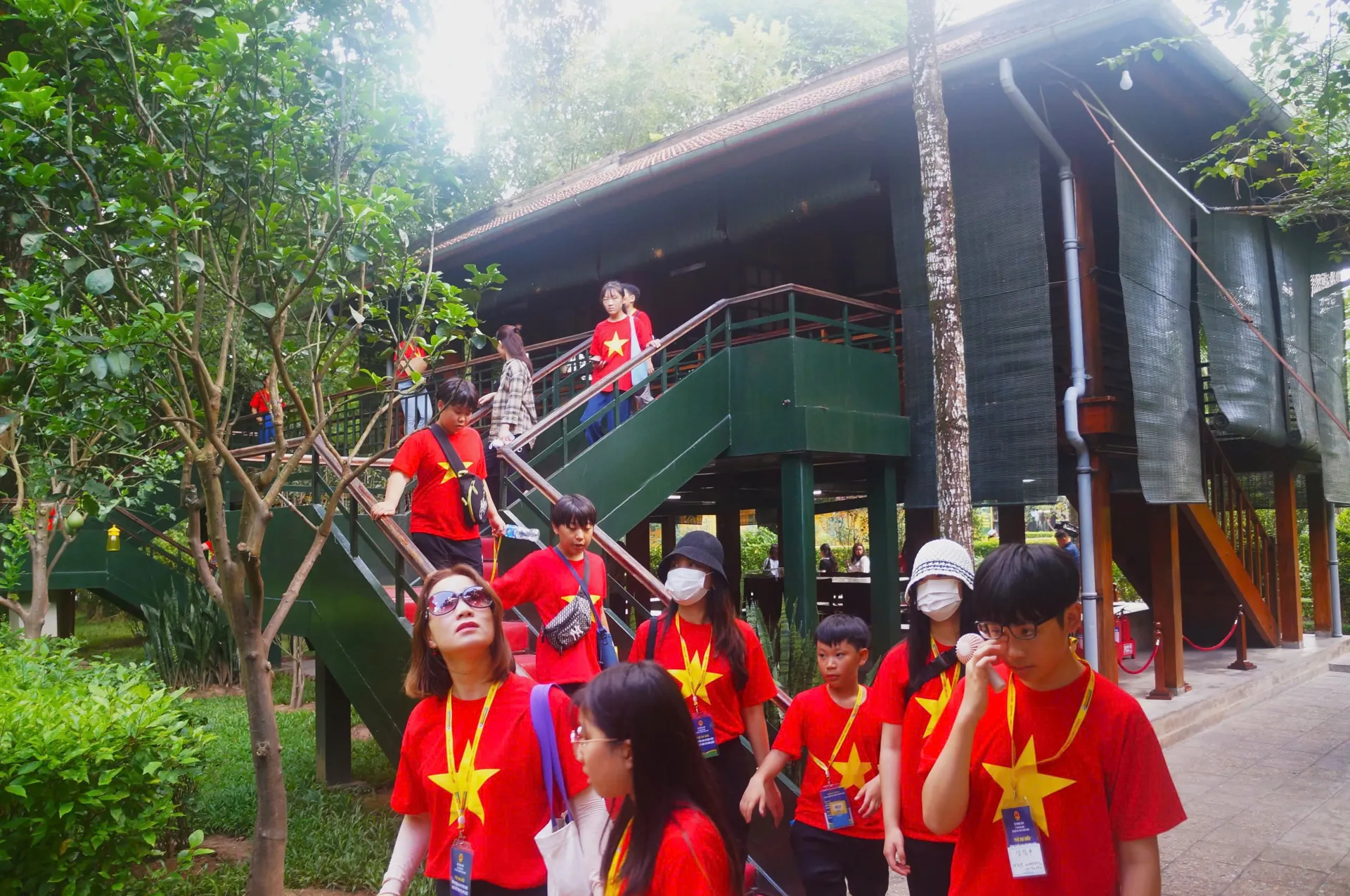
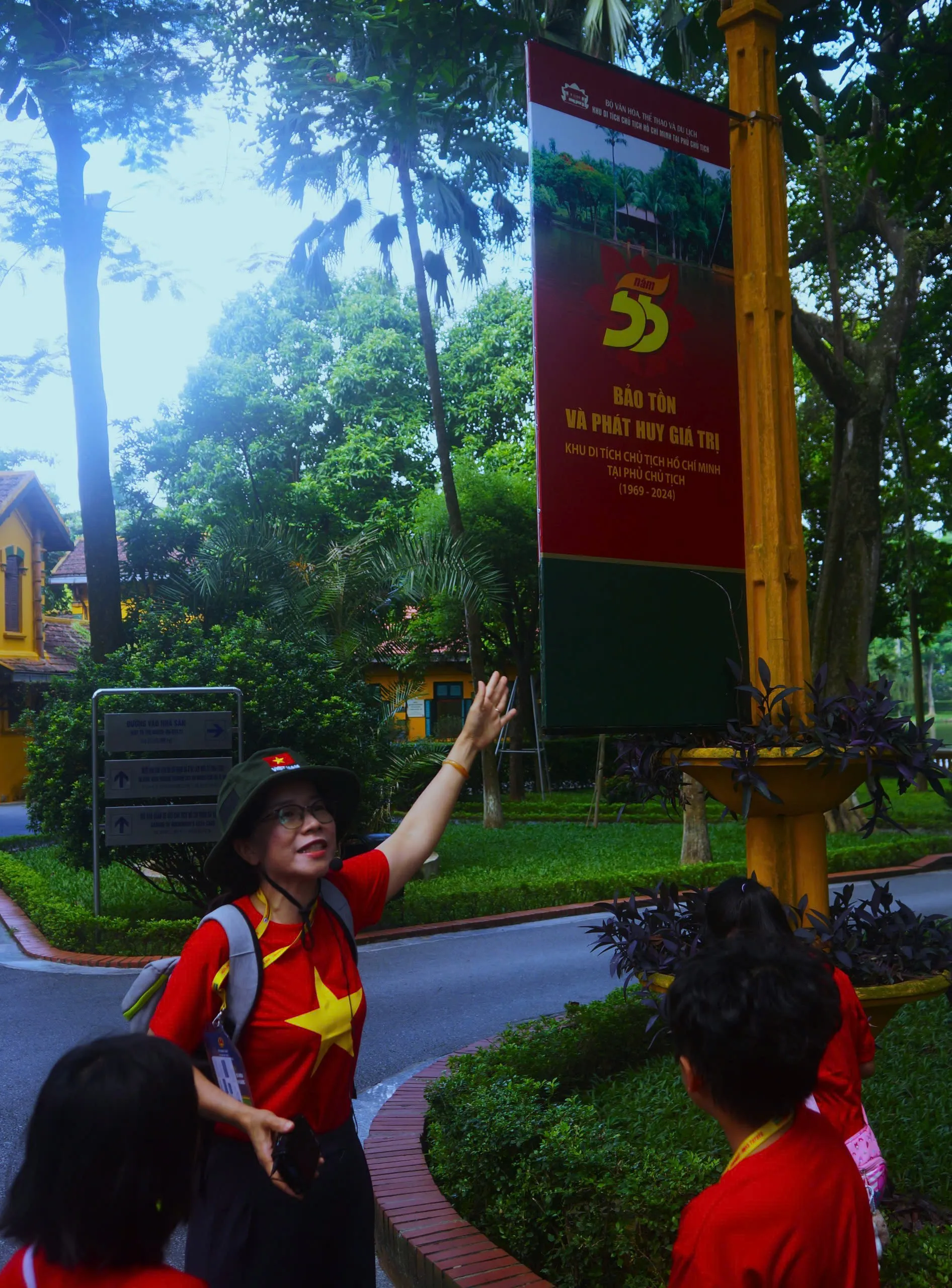
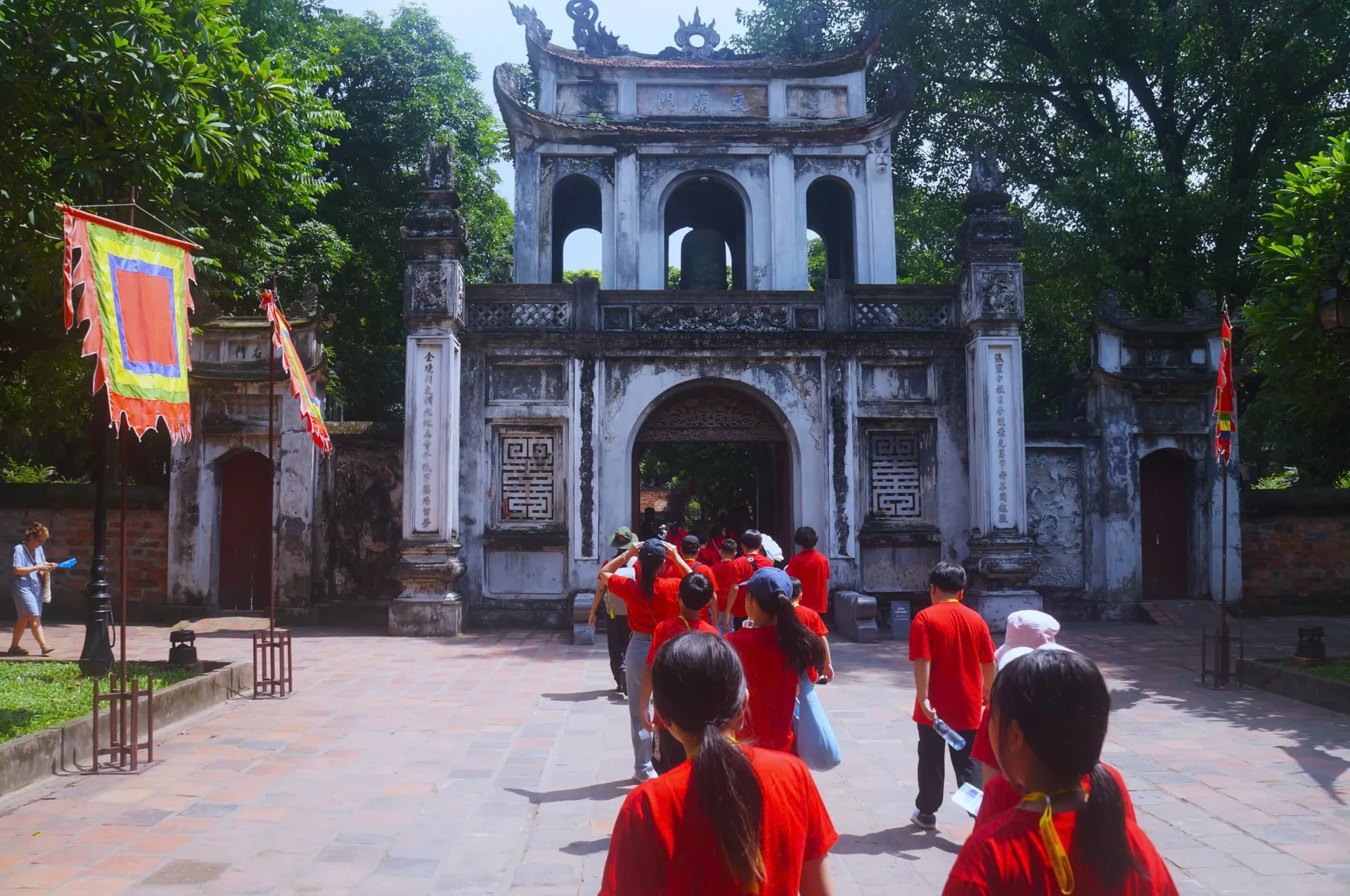
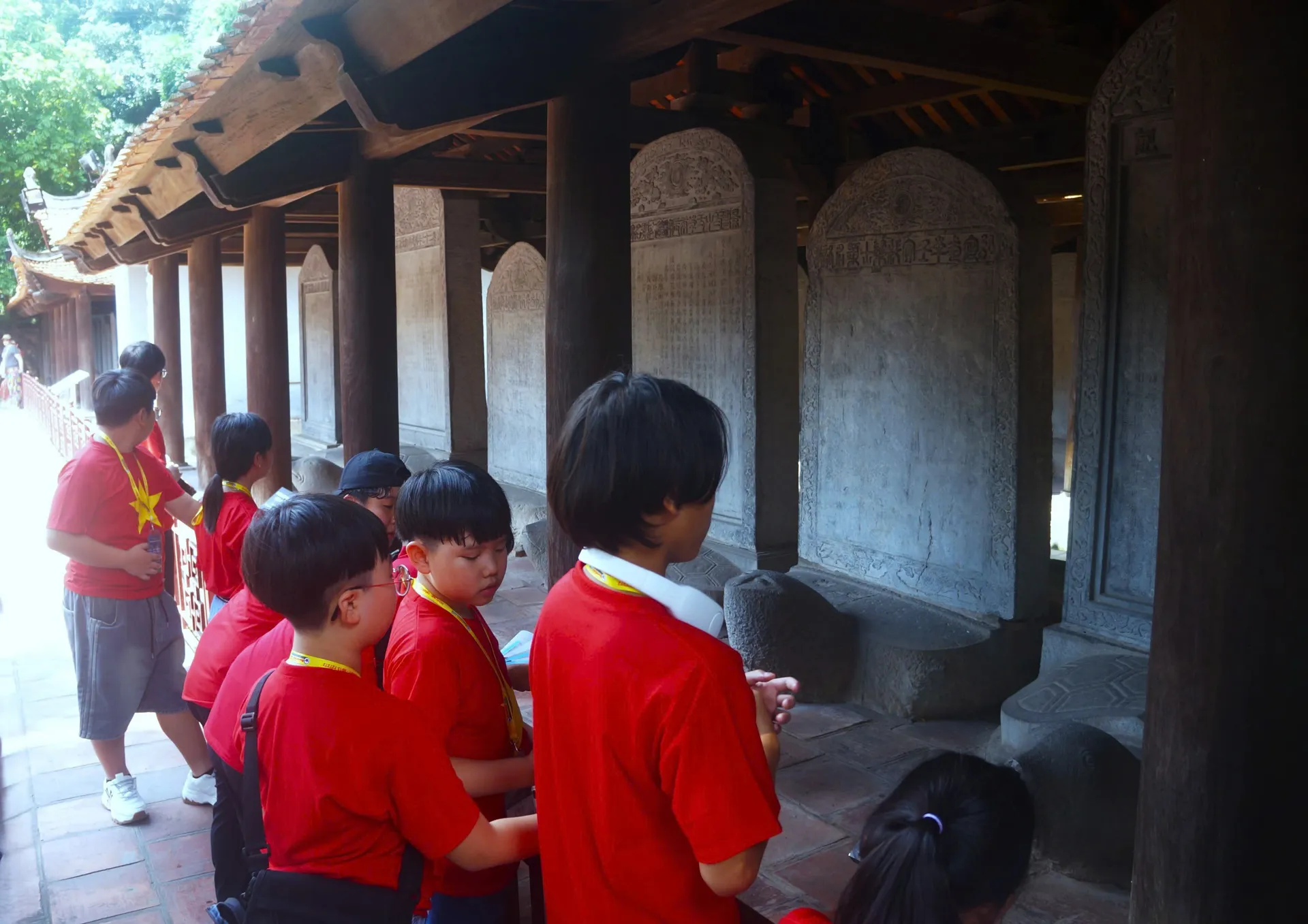
.jpg)


